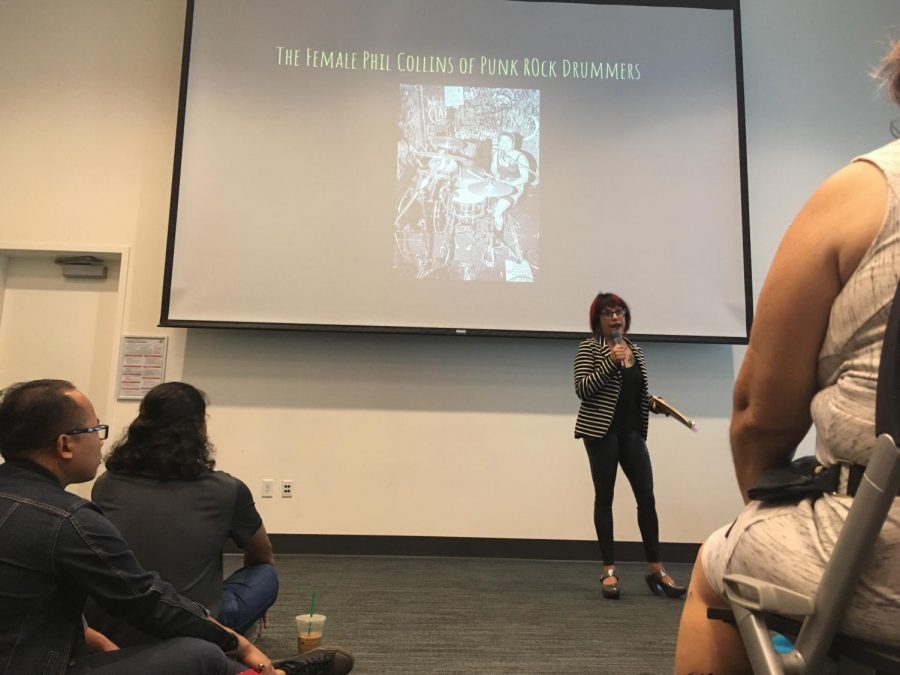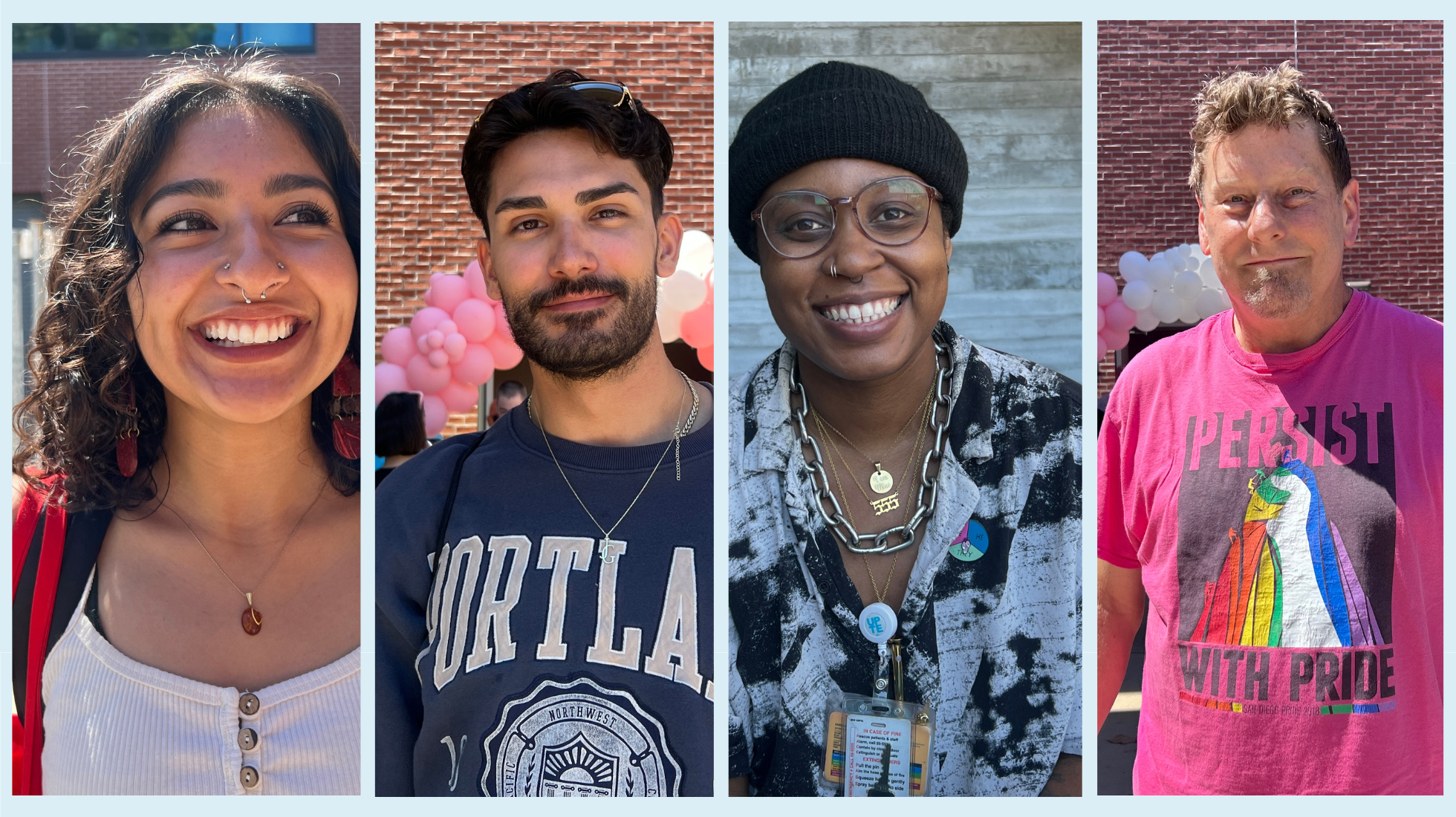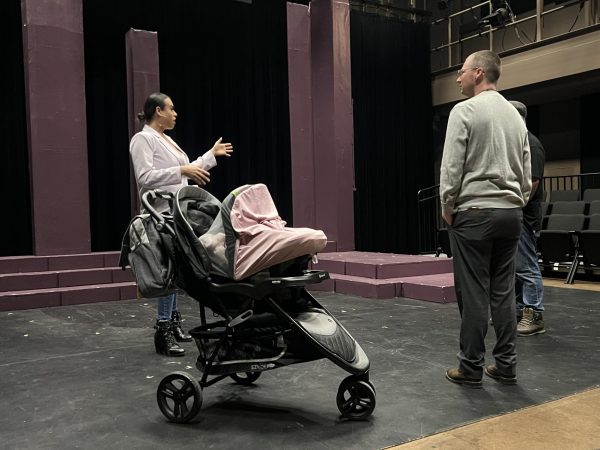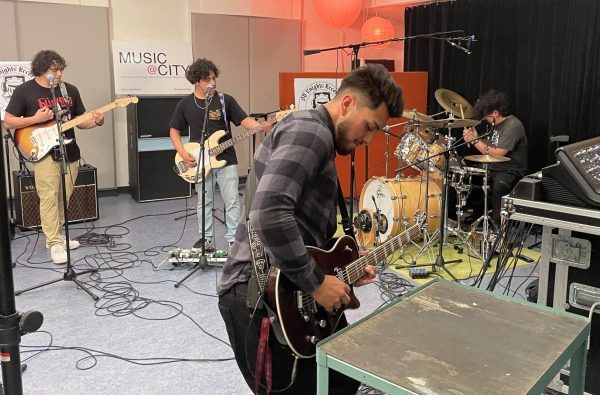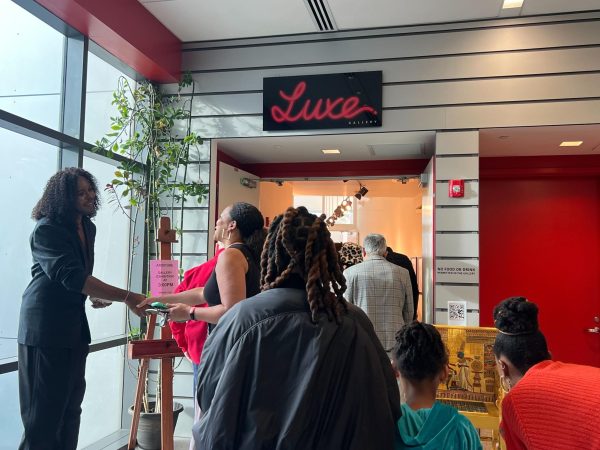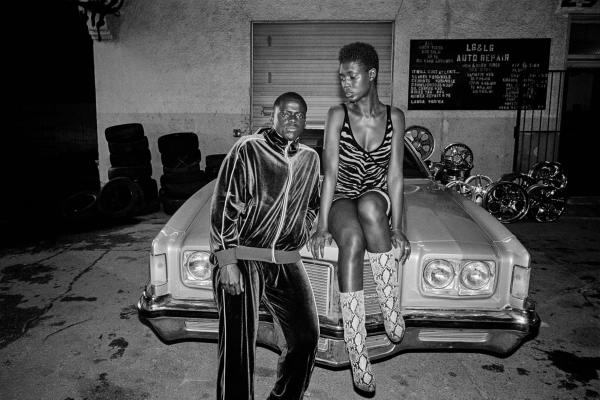Former punk drummer stops by City College to talk stereotypes
Xicana author and musician talked about her time in an all-female punk band.
“The Spitboy Rule” author Michelle Cruz Gonzales read portions of her book to students. Photo by Melisa Cabello-Cuahutle.
September 28, 2019
Former punk band member Michelle Cruz Gonzales came to San Diego City College to talk about her experience of being the only woman of color in a punk band.
As part of the World Cultures Program, Gonzales came to City last Thursday to discuss and read her book, “The Spitboy Rule.”
Gonzales was the drummer of Spitboy, an influential band during the 1990s in the San Fransisco Bay Area. Being an all-female punk band, they often dealt with sexism and harassment.
Gonzales, who was one of the few people of color in the punk industry, encountered colorblindness and differences in class which affected her relationship with her bandmates.
The event filled the room and had a strong student presence with about half of the audience having to sit on the floor while some remained standing.
Some students showed their appreciation for hearing from a Mexican-American that does not fit the stereotypes. “(She’s) not just being the traditional Mexican, (she’s) being different,” said student Claudia Ramirez.
Gonzales was a preschool teacher during her time in Spitboy. After the band split she earned her degree in English and now works as an English professor at Las Positas College, a community college in Livermore, California.
“(It’s) something new for us. (She’s) a teacher, a drummer, a feminist. It’s a whole contrast. I think it’s really interesting,” said Aldo Figueroa after he heard Gonzales’ story.
“The Spitboy Rule” talks about confronting adversity, bettering yourself and creating a new path that fits you.
When asked if she had any advice for people of color who are acting out against social norms, Gonzales said, “Just keep doing it, you don’t need anybody’s permission to be who you are. None of us do. Finding a movement … that you can be a part of, in a community that can support you, and being in community with those people, is a way for you to do that in a way that feels good … to feel successful and supported.”
Gonzales continues writing and talking about her books and lectures in schools around the country, while continuing to play the drums and pushing against stereotypes.


